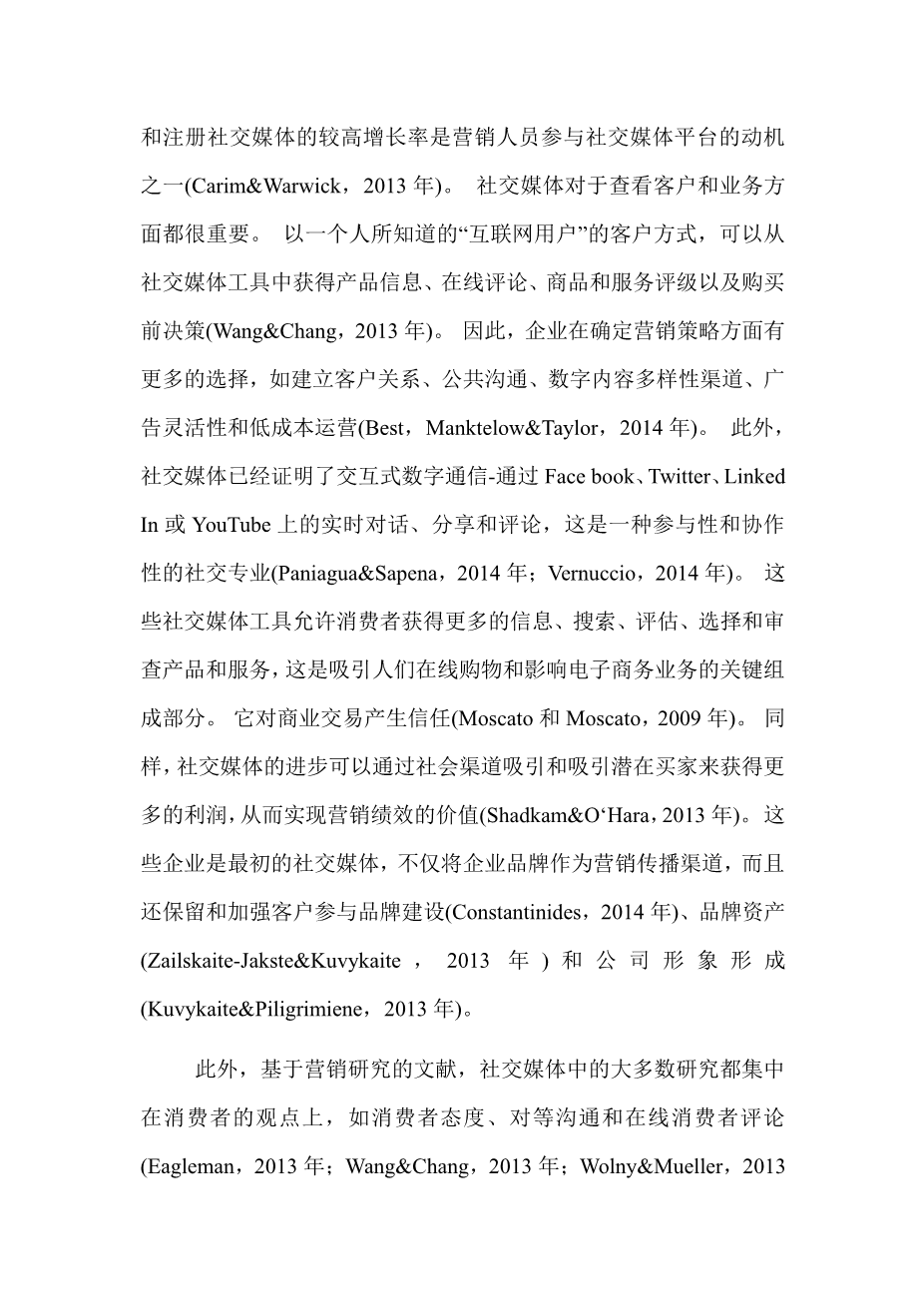SOCIAL MEDIA MARKETING STRATEGY AND MARKETING OUTCOMES: A CONCEPTUAL FRAMEWORK
ABSTRACT
Undeniably, social media has come to a higher degree of popularity in the online world. Currently, most businesses have been utilizing any social media platforms for social media marketing in their strategy. Yet, in this sense it still has to be explored concerning how social media marketing strategy affects marketing outcomes. Therefore, this conceptual paper aims at investigating the relationship of social media marketing strategy and marketing outcomes. There are four dimensions of social media marketing strategy that include: customer communication channel focus, product diversity presentation awareness, proactive competitor learning capability, and market response timeliness orientation. Consequently, marketing outcome is specific in marketing operation excellence, cost utilization effectiveness, customer satisfaction increase, and marketing performance in that all expect a positive relationship with the construct. In future research, the researcher should test of this paper suggestion. Interestingly, regarding evidence in Thai e-commerce firms, the key finding still expects for empirical research to manifest whether social media marketing strategy will be a comprehensive accomplishment for marketing outcome or not?
INTRODUCTION
Since the 1990s, social media has gained popularity worldwide (Campbell, Anitsal amp;Anitsal, 2013). The development of internet technology has transformed the communication manner that affects billions of people. Social media is an online community built on internet technology that attains what is necessary for more interaction between business and the customer. Due to the expansion of internet users, high speed connection, ease of use, and the speedy distribution of social media; more firms have applicable marketing strategy (Goi, 2014; Zhou amp;Wang, 2014). The higher growth rate of internet users and registered social media is one motive to marketers concerning social media platform engagement (Carim amp;Warwick, 2013). Social media are important for viewing both customer and business aspects. In the customer manner that one knows as 'internet users,' searching product information, online reviews, rating of goods and services, and pre-purchase decision-making can be obtained from social media instruments (Wang amp;Chang, 2013). Therefore, businesses have more choices for determining marketing strategy such as building customer relationships, public communication, digital content diversity channels, advertising flexibility, and low cost operations (Best, Manktelow amp;Taylor, 2014). Additionally, social media has evidenced interactive digital communication-a participative and collaborative social specialty through real time conversation, sharing, and review on Facebook, Twitter, LinkedIn, or YouTube (Paniagua amp;Sapena, 2014; Vernuccio, 2014). These social media tools allow consumers to get more information, search, evaluate, choose and review products and services which is a critical component in attracting people to shopping online and that influence e-commerce business. It engenders trust in the business transaction (Moscato amp;Moscato, 2009). Likewise, social media advances can make more profit by attracting and alluring a potential buyer via social channels that realize the value of marketing performance (Shadkam amp;OHara, 2013). The businesses are the initial social media employing not only communicating corporate brands as a marketing communication channel, but also remain and enhance customer involvement with brand-building (Constantinides, 2014), brand equity (Zailskaite-Jakste amp;Kuvykaite, 2013), and a companys image formation (Kuvykaite amp;Piligrimiene, 2013).
Moreover, based on the literature of marketing research, most studies in social media focus on a consumers perspective such as consumer attitude, peer-to-peer communication and online consumer review (Eagleman, 2013; Wang amp;Chang, 2013; Wolny amp;Mueller, 2013). On the other hand, a few studies are on marketing strategy at the business level. These issues shed light on research gaps in the literature. Therefore, the key purpose of this paper is to investigate the relationship of social media marketing strategy and marketing outcomes. The next section reviews the literature, and describes the conceptual model. Also, the linkage between the construct of the each variable is established, and develops the related proposition for the study. The sections on contributions describe suggested directions for future research and managerial contributions. Finally, the findings of the study are summarized in the conclusion section.
LITERATURE REVIEWS
In this study, a conceptual framework of social media marketing strategy and marketing outcome is explicitly discussed and elaborately examined. Thus, the concept, linkage, and research model is provided in Figure 1. Social media marketing strategy
Internet technology has been created for not only consumer communication but also reshapes the way marketers enhance their marketing outcomes (Barwise amp;Sean, 2010). Especially, social media is implemented by internet technology that has fast growth, is novel, is challenging, and is changing the global world of marketing. Indeed, social media provides a mutual benefit between the organization and its customers (e.g. public relations, advertising, brand exposure, communication, review and recommendation) (Smedescu, 2012; Carim amp;Warwick, 2013; Fensel et al., 2014).
Accordingly, Ristova (2014) stated that most popular social media are helpful to a companys online sales and encourages its products and services. There are several types of social media such as Facebook, Twitter, LinkedIn, and blogs. Statistically, worldwide, there are 800 million active users of the Facebook application, more
剩余内容已隐藏,支付完成后下载完整资料


英语译文共 18 页,剩余内容已隐藏,支付完成后下载完整资料
资料编号:[607426],资料为PDF文档或Word文档,PDF文档可免费转换为Word
课题毕业论文、文献综述、任务书、外文翻译、程序设计、图纸设计等资料可联系客服协助查找。


